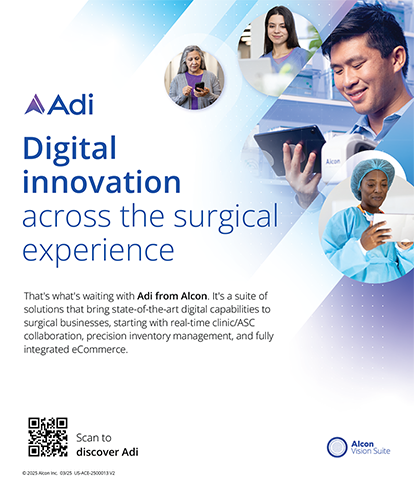One of the broadly accepted axioms casually applied to all fields of medicine, and certainly to ophthalmology, is, "If a physician makes patients happy, that physician will build a very successful practice." At face value, this statement seems fairly reasonable, but it is wrong—very wrong. Patients expect to be happy with their physicians. The secret to success in patient care is to exceed their expectations. Patients who have an extraordinarily positive experience tell everyone about it. I enjoy making patients happy, but my endorphins really kick in when they use words like ecstatic, unbelievable, and life-changing. The great news is we now have the technology to elicit these comments on a regular basis with refractive cataract surgery.
How good does patients' vision need to be for them to be happy? No single number suffices, because every patient is different. Sometimes, I hear the expression 20/happy, which is described as the subjective vision a patient requires in order to be satisfied following surgery. Most ophthalmologists use this concept as an end point: the patient is happy, and they need provide no further treatment. I think we should consider redefining 20/happy as the minimum we are attempting to achieve.
When I see a patient who is happy following surgery but whose outcome I can easily improve, I want to take the next step. For example, aggressively treating mild postoperative dry eye should improve a patient's quality of vision and quality of life. A patient who is happy with a diopter of residual cylinder should be delighted after a limbal relaxing incision. Yes, limbal relaxing incisions may pose a small risk, but an informed consent discussion allows patients to make their own decision. Unhappy patients expect their physician to make them happy. Happy patients appreciate and are often amazed when a physician cares enough to discuss the additional steps possible for improved vision.
In this edition of Cataract & Refractive Surgery Today, leading ophthalmologists discuss a variety of techniques and technologies that can improve surgical outcomes. Each article offers pearls for enhancing the safety and refractive accuracy of cataract surgery. I hope you enjoy reading this issue and that you embrace the ideas that can help you exceed your patients' expectations on a regular basis.
Eric D. Donnenfeld, MD
Co-Chief Medical Editor


